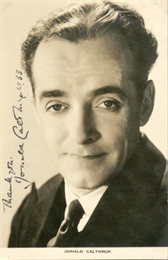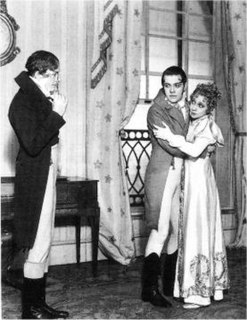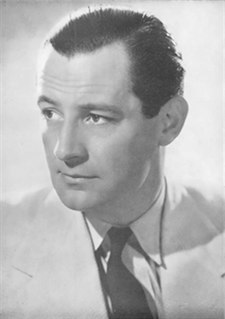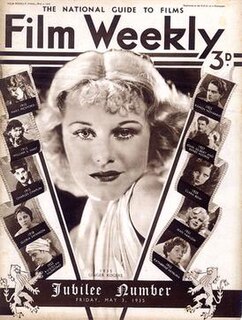Related Research Articles

Twickenham Studios is a film studio in St Margarets, in the London Borough of Richmond upon Thames, that is used by various motion picture and television companies. It was established in 1913 by Ralph Jupp on the site of a former ice rink. At the time of its original construction, it was the largest film studio in the United Kingdom.

"Swing Low, Sweet Chariot" is an African-American spiritual song and one of the best-known Christian hymns. Originating in early oral and musical African-American traditions, the date it was composed is unknown. Performances by the Hampton Singers and the Fisk Jubilee Singers brought the song to the attention of wider audiences in the late 19th century. J. B. T. Marsh includes an early version of text and tune in his 1876 publication The Story of the Jubilee Singers, with their Songs. The earliest known recording of "Swing Low, Sweet Chariot" was taken in 1909, by the Fisk Jubilee Singers of Fisk University.

Donald Esme Clayton Calthrop was an English stage and film actor.
Murder at Covent Garden is a 1932 British crime film directed by Leslie S. Hiscott and starring Dennis Neilson-Terry, Anne Grey, George Curzon and Walter Fitzgerald. It was made at Twickenham Studios. The screenplay involves a detective who investigates the murder of a night club owner.

Shooting Stars is a 1927 British drama film directed by Anthony Asquith and A. V. Bramble and starring Annette Benson, Brian Aherne and Wally Patch. The screenplay concerns a starlet who plots an escape to Hollywood.
Julius Hagen (1884–1940) was a German-born British film producer who produced more than a hundred films in Britain.
Broken Blossoms is a 1936 British drama film directed by John Brahm and starring Emlyn Williams, Arthur Margetson, Basil Radford and Edith Sharpe. Director Bernard Vorhaus was technical supervisor.
It's a Cop is a 1934 British police-themed comedy film directed by Maclean Rogers and starring Sydney Howard, Chili Bouchier and Garry Marsh. It was made at British and Dominion Elstree Studios.

White Face is a 1932 British crime film directed by T. Hayes Hunter and starring Hugh Williams, Gordon Harker and Renee Gadd. The film is based on a play by Edgar Wallace.
Autumn Crocus is a 1931 play by the British writer Dodie Smith. It was Smith's first play written under the pseudonym of C.L. Anthony. It follows a single schoolteacher who goes on holiday to the Tyrol and falls in love with the married owner of the hotel in which she is staying.

Potiphar's Wife is a 1931 British romance film directed by Maurice Elvey and starring Nora Swinburne, Laurence Olivier and Guy Newall. It is also known as Her Strange Desire. It was based on a play by Edgar C. Middleton.

Gladys Edith Mabel Calthrop was an artist and leading British stage designer. She is best known as the set and costume designer for many of Noël Coward's plays and musicals.
The Clue of the New Pin is a 1929 British crime film directed by Arthur Maude and starring Benita Hume, Kim Peacock, and Donald Calthrop. It was made at Beaconsfield Studios.
The Bells is a 1931 British drama film directed by Harcourt Templeman and Oscar Werndorff and starring Donald Calthrop, Jane Welsh, and Edward Sinclair.

Anthony Ireland was a British actor. He was born in Peru to British parents but by 1904 his family lived in Chile, where his brother Noel was born. In 1910 they moved to England and in the 1911 census they were shown as living in Bedford. Noel became an RAF pilot and was killed in a crash in 1931.
The Flying Squad is a 1929 British silent crime film directed by Arthur Maude and starring John Longden, Donald Calthrop and Wyndham Standing. The film was made at Beaconsfield Studios. It was based on the 1928 novel The Flying Squad by Edgar Wallace, which was later remade with sound in 1932 and 1940.

Film Weekly was one of the leading popular film magazines published in the United Kingdom during the late 1920s and 1930s.

Lily of Killarney is a 1934 British musical film directed by Maurice Elvey and starring John Garrick, Gina Malo and Leslie Perrins. The film was made at Twickenham Studios. It is based on the play The Colleen Bawn by the Irish writer Dion Boucicault. The film's sets were designed by the art director James A. Carter.
Nine Forty-Five is a 1934 British crime film directed by George King and starring Binnie Barnes, Donald Calthrop and Violet Farebrother. It was made at Teddington Studios by the British subsidiary of Warner Brothers. A quota quickie, it is based on a play by Sewell Collins.
Two Worlds is a 1930 British war drama film directed by Ewald André Dupont and starring Norah Baring, John Longden and Donald Calthrop. It was made at Elstree Studios by British International Pictures. It was made as an MLV, with a separate German-language version Zwei Welten and the French Les deux mondes.